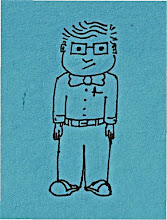One of my favorite Hollywood stories is about Willy Wonka and the Chocolate Factory. The screenwriter, David Seltzer, was on vacation, and got a call from set. It was the director. Mel Stuart. He was shooting the last scene of the movie, and they needed something for Willy Wonka to say to Charlie while they’re flying away in the great glass elevator. Seltzer -- who hadn’t thought about the script in months, who was not going to be credited because he’d been called in to doctor Roald Dahl’s script (and Roald Dahl was so angry that he never saw the movie) -- Seltzer came up with this: “Charlie, don’t forget what happened to the man who suddenly got everything he always wanted… he lived happily ever after.”
Classic.
When confronted by a dream, it’s best to go with it.
A Comedy of Errors is a play of incredible coincidence. Citizens of Ephesus are not permitted to travel to Syracuse and vice versa. A merchant from Syracuse comes to Ephesus and is going to be put to death unless someone pays a ransom of 1000 francs. Also come to the town that day are Antipholus of Syracuse and his servant Dromio of Syracuse. Little do they know that they each have twin brothers (precisely the people that the merchant has come to find) who live in Ephesus and who are also named Dromio and Antipholus. Naturally, Antipholus of Ephesus’s wife gets very confused when she runs into his Syracusan counterpart. There’s a courtesan, a mix up regarding a gold chain, and a rotund cook who is in love with Dromio. All essential elements of comic acceleration.
When Antipholus of Syracuse meets Adriana (his twin brother’s wife) he makes this decision in an aside:
To me she speaks; she moves me for her theme.
What, was I married to her in my dream?
Or sleep I now and think I hear all this?
What error drives our eyes and ears amiss?
Until I know this sure uncertainty,
I’ll entertain the offered fallacy. (2:2)
He decides to suspend his disbelief. It’s the same thing asked of any theater-going audience: to “entertain the offered fallacy.” He doesn’t know it at the time, but it’s his decision to stick around, to lose himself and sink deeper into the confusion of the mad Ephesians that saves his father’s life, identifies his mother (the local Abbess), and reveals his sundered twin brother.
My brother (not twin) is a Buddhist. Buddhists don’t believe in coincidence. This has to do with the interconnectedness of life and how enlightenment is being able to have a universal perspective and junk. All events are related by cause and effect. Nothing happens without some previous happening prompting it and all future events are linked to the events of this moment.
It’s true that two sets of identical twins is very convenient for comic storytelling. Shakespeare’s employment of the mistaken identity device matures with his later comedies, Twelfth Night and A Midsummer Night’s Dream and maybe it’s unfair for me to call it coincidental (an abhorred adjective in all modern story construction), since it’s part of the set-up. You suspend your disbelief at the opening of the play and accept the established relationships of the world and your prize for doing so is hilarity and entertainment.
There is always a prize for believing in things.
I fell in love one night. I kissed a beautiful girl and she kissed me. It was May in Minnesota and after leaving her -- before I could go into my crappy basement apartment that night -- I had to run away for a while. Falling in love is too big for a basement. It’s too big for brick walls or any man-made architecture. So I ran down the street. I started slow, and then went faster and faster.
Soon I was jumping off of ledges, and vaulting over fire hydrants. I grabbed tree branches, swung like Tarzan and landed in stride. For blocks, then miles, deep into the residential jungle between the Mississippi River and St. Paul’s Cathedral, until I collapsed in exhaustion on someone’s lawn.
That’s when I heard a small flittering noise. Like ant footsteps or tiny drops of rain. I looked closer at the blades of deep green grass around me. It had been a humid spring, and the color was rich, even at nighttime. The blades were flickering. I noticed the same thing on a nearby bush. The leaves twitched in little jerky movements.
It wasn’t raining.
It wasn’t windy. But everything was moving.
And then I realized… the leaves were unfurling.
I looked again at the grass. It was growing.
Down the entire silent street. The air was still and moist, and every flower flowered, every tree bloomed. Everything was waking up. And I was there to see it.
I was time-lapse photography. I was the fastest man alive.
There are periods of great wonder in life and you will know them by miraculous bookends. They present as fallacies. But when offered, it’s best to go with them.
It only took a headfirst dive into the dream that someone so beautiful could feel feelings for me. All the best things that have happened in my life grew out of that night’s confession and a warm spring kiss. Like Antipholus, there was mischief and fallout, and great piles of misery in the proceeding chain of effects. But I believe it will turn out happily once I get to the ever after.

this is the sweetest blog post ever. i hope you do get your ever after, sooner rather than later.
ReplyDeleteagreed, gabe, a rich story. -- jonah
ReplyDelete